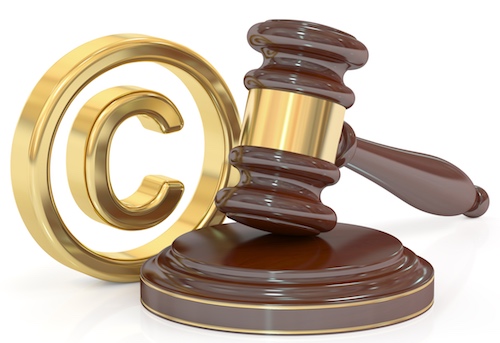 On October 4th, the U.S. Court of Appeals for the Second Circuit issued a summary order in Latin American Music Company v. Spanish Broadcasting System affirming a lower court’s judgment denying copyright infringement claims brought by music publisher Latin American Music Co. (LAMCO) against radio station owner Spanish Broadcasting System (SBS). The Second Circuit determined that LAMCO’s arguments on appeal were without merit and upheld findings that its infringement claims were either time-barred or unprovable.
On October 4th, the U.S. Court of Appeals for the Second Circuit issued a summary order in Latin American Music Company v. Spanish Broadcasting System affirming a lower court’s judgment denying copyright infringement claims brought by music publisher Latin American Music Co. (LAMCO) against radio station owner Spanish Broadcasting System (SBS). The Second Circuit determined that LAMCO’s arguments on appeal were without merit and upheld findings that its infringement claims were either time-barred or unprovable.
LAMCO and its licensing subsidiary, Asociación de Compositores y Editores de Musica Latinoamericana (ACEMLA), first filed this suit against SBS in the Southern District of New York in March 2013. LAMCO and ACEMLA alleged that SBS, which owns and operates radio stations in New York, Miami, Los Angeles, Puerto Rico, Chicago and San Francisco, entered into a one-year licensing agreement in December 1994 allowing SBS’ radio stations to play music owned by LAMCO. SBS made licensing payments to LAMCO until July 1996 but LAMCO alleged that SBS radio stations, including Mega 97.9 in New York City and La Zeta in Puerto Rico, continued to play music from LAMCO’s library up to time that the suit was filed in 2013.
After a bench trial in the case, U.S. District Judge Richard J. Sullivan issued an opinion and order in May 2017, finding that LAMCO and ACEMLA had failed to meet the burden of proof to support its infringement claims. During the trial, the plaintiffs provided testimony from a single witness: Luis Raul Bernard, the president of both LAMCO and ACEMLA. Bernard submitted an affidavit prior to the trial stating that LAMCO is the owner of the copyright to the songs involved in the suit but during cross-examination, Bernard acknowledged that neither LAMCO or ACEMLA actually owned those copyrights. SBS produced a document from a different case which showed that the plaintiffs hadn’t owned the copyrights since June 2003 and that they were actually owned by Bernard’s sister-in-law, an employee at LAMCO.
Bernard’s affidavit also stated that he had personally heard SBS radio stations play songs allegedly owned by LAMCO and recorded the day and time at which those songs were played. However, during cross-examination, counsel for the defendant pointed out discrepancies between the dates recorded in the affidavit and those included in a third amended complaint. Bernard failed in his ability to recall other important facts including whether songs were performed by a male or female singer or whether the songs he heard were simply snippets played for promotional purposes.
“Accordingly, the Court has little trouble concluding that none of Bernard’s testimony, whether in his affidavit submitted as direct testimony or during cross-examination, is credible, and that Bernard was basically making up his testimony as he went along,” Judge Sullivan’s opinion reads. The court then granted summary judgment in favor of SBS after determining that LAMCO and ACEMLA failed to prove either element of their copyright infringement claim.
In the recent summary order following LAMCO and ACEMLA’s appeal, the Second Circuit noted that the Copyright Act requires that a claim be brought within three years from the time it accrued. Citing to its own 2011 decision in Kwan v. Schlein, the Second Circuit noted that a claim accrues only once and it can be triggered by any number of events, “including an express assertion of sole authorship or ownership.” Seven of the thirteen songs involved in this trial were copyrighted in the 1970s by either Fania Publishing or Fania Records. LAMCO and ACEMLA argued that they purchased the copyrights in the 1990s not from Fania but rather from the authors of the songs or their heirs. Thus the copyright infringement claims on those songs were time-barred because a reasonably diligent plaintiff would have reviewed the Copyright Office’s registrations for those songs when purchasing the copyrights but this particular suit wasn’t filed until 2013.
Other arguments made on appeal by LAMCO and ACEMLA weren’t properly reserved for appeal, the Second Circuit found. This includes an argument that LAMCO and ACEMLA could be the valid transferees of copyright renewal terms of the Fania works, an argument that the plaintiffs didn’t make to the district court. As for the other six songs which weren’t among the Fania works, the appellate court noted the district court’s rejection of Bernard’s testimony led to that court finding that there was no proof that SBS ever played those songs on the radio. On appeal, LAMCO and ACEMLA didn’t challenge this factual finding in their opening brief and so they failed to preserve a challenge to that finding.
Image Source: Deposit Photos.

![[IPWatchdog Logo]](https://ipwatchdog.com/wp-content/themes/IPWatchdog%20-%202023/assets/images/temp/logo-small@2x.png)

![[Advertisement]](https://ipwatchdog.com/wp-content/uploads/2024/04/Patent-Litigation-Masters-2024-sidebar-early-bird-ends-Apr-21-last-chance-700x500-1.jpg)

![[Advertisement]](https://ipwatchdog.com/wp-content/uploads/2021/12/WEBINAR-336-x-280-px.png)
![[Advertisement]](https://ipwatchdog.com/wp-content/uploads/2021/12/2021-Patent-Practice-on-Demand-recorded-Feb-2021-336-x-280.jpg)
![[Advertisement]](https://ipwatchdog.com/wp-content/uploads/2021/12/Ad-4-The-Invent-Patent-System™.png)







Join the Discussion
No comments yet.